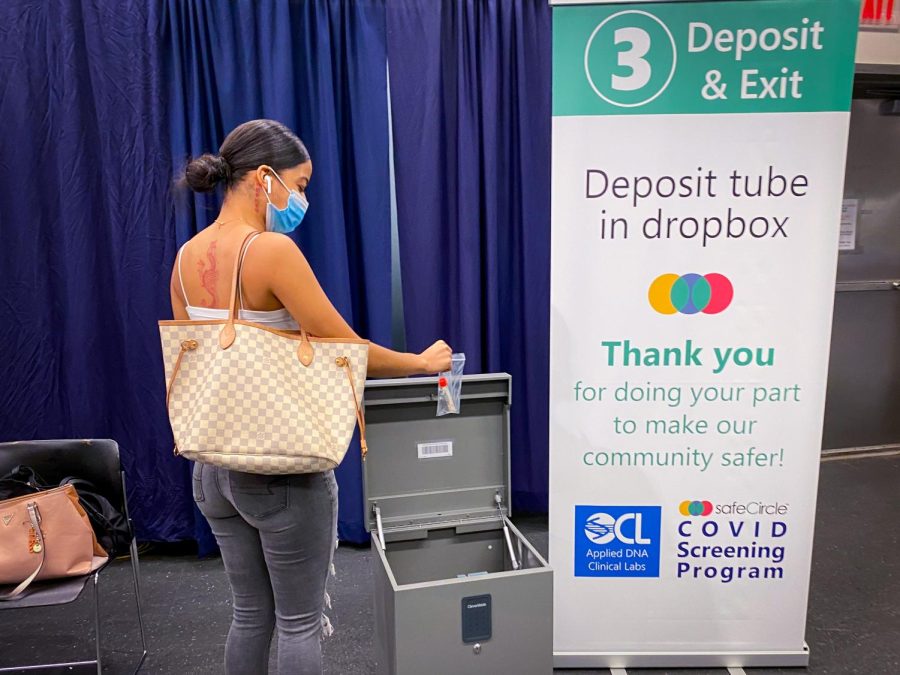CUNY students not fully aware about randomized COVID-19 testing program
February 18, 2022
The CUNY program for randomized COVID-19 testing has been received with mixed criticism from the student body regarding the level of awareness.
The testing program has been in place since November 2021, which was meant to complement the required weekly testing for employees who hadn’t revealed their vaccination status and students who received a vaccination exemption.
In an email sent to the student body, CUNY stated that those who are selected will receive an email from reply@cleared4.org with instructions. Those students have seven days to submit a test from a CUNY test site.
Despite the email sent about the program, there are conflicting reactions regarding how aware students are of the program and what to do if a student has been selected to participate. Several students shared their experiences and perspectives with The Ticker through a Google Form survey.
Some students found no issues with how the information regarding testing is handled. Baruch College junior Tillmar Sherrill was selected and said that the instructions given in the email are
“pretty clear.”
Yasmine Abdeldayem, a junior at the College of Staten Island, said that the communication was “straightforward” and that the process of getting a test was “clearly articulated.”
If a student cannot go to their own college to get tested, they can go to one of 20 CUNY–run test sites.
However, since only tests from these sites are accepted, it could be complicated for those out of the country to follow the protocol within seven days.
Shaurya Taparia, a junior at Baruch, was out of the country when she received the email that she had been randomly selected and could not meet the seven-day deadline.
“I had to reach out to multiple different people in order to get this extension for the deadline which was not an ideal situation and was troublesome,” she said.
Hunter College student Koskaya Farfan, who was selected twice for the program, felt there was some miscommunication among the emails.
“I’d receive warning emails when I didn’t even receive the original email asking me to get tested,” Farfan said.
If they do not adhere to these protocols, students would be contacted “on next steps determined by eligibility, on-campus requirements and other information,” according to the program’s original email.
Yet, some students are not aware of the program at all. Some students, like Baruch junior Amely Gonnell, originally thought it was a scam, “because I don’t think it was publicly known or mentioned.”
Baruch senior Eunice Ban said that there could be problems with sending emails in the first place.
“I’ve actually had experiences where some of my classmates didn’t receive certain emails from school while others did,” she said.
Students suggest that there should be clearer means of disseminating information to the CUNY community. Some stated that there should be flyers on campus or posts about the program and directions to test sites on social media.
Taparia advocated for providing more information and communication about the programs, as well as “more flexibility,” so students who were in a similar situation “have options in case someone is out of the country or unable to make it to campus.”










Cunyscam • Mar 21, 2023 at 12:12 pm
Its a joke by the cuny system to try and think liberally and act like theyre combating a viral infection when they do nothing but figure out ways to keep students in school failing
Lucius Johnson • Sep 19, 2022 at 3:29 pm
Its is very stupid.The city is fully open.Testing in public schools for children isnt even happening.